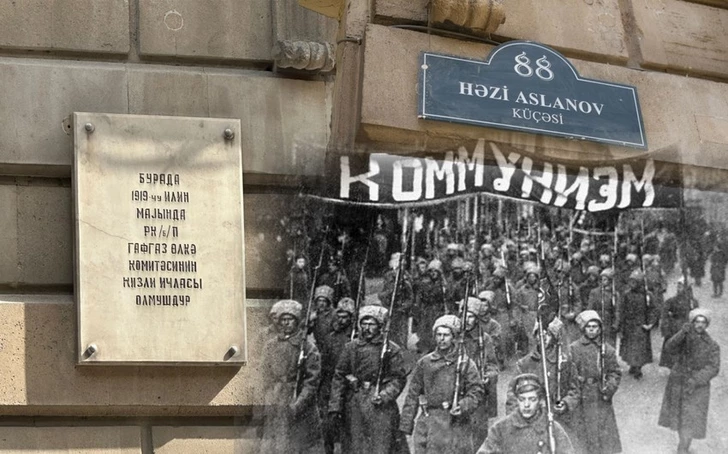More than 30 years after Azerbaijan broke free from Soviet rule, a Soviet-era memorial plaque still hangs on a central Baku building, sparking debate over how the country should deal with relics of its colonial past.
The plaque, located at 88a Azi Aslanov Street — in a busy public space passed daily by thousands of residents and tourists — has become a focal point in the discussion over decommunization. Critics say it is not merely a remnant of the past but a symbol of the Communist Party’s role in ending the short-lived Azerbaijan Democratic Republic (ADR) in 1920 and turning the country into a province of Soviet Russia.
Historians and Lawmakers Call for Removal
Professor Boran Aziz of Baku State University called the plaque’s presence “shameful” in an independent Azerbaijan. “The Communist Party was the enemy of our independence. It actively worked to overthrow the ADR and restore Russian control,” he said.
MP Vasif Gafarov echoed that view, stating that such memorials commemorate forces that sought to destroy Azerbaijan’s sovereignty. “These plaques should unquestionably be dismantled,” he stressed.
Investigative journalist Dilgam Ahmad argued it is illogical to keep such a symbol in front of the Independence Monument, given the Bolsheviks’ role in ending Azerbaijan’s first republic.
Cultural and Historical Nuances
Not all voices support removal. Elbay Gasimzade, chairman of the Union of Architects of Azerbaijan, said monuments and plaques reflect their era and should be viewed in a historical context, citing the example of controversial statues in Paris that remain in place as part of national history.
The Ministry of Culture pointed out that under Azerbaijan’s 1998 Law on the Protection of Historical and Cultural Monuments, any restoration, removal, or alteration requires formal approval and expert review.
Ilgar Niftaliyev, deputy director of the Institute of History and Ethnology at the National Academy of Sciences, noted that Azerbaijan’s decommunization process has been selective, with some Soviet-era monuments still standing due to public nostalgia in the early independence years. He suggested creating a dedicated museum to house all such symbols, following the example of other countries.
Unclear Who Will Act
The Baku City Executive Authority says plaque removal is not within its direct mandate, and no government body has stepped forward to take responsibility. Experts believe the city leadership, along with relevant ministries, would need to make the decision jointly.
For now, the memorial remains in place. But historians, MPs, and journalists insist that public debate — and growing calls from society — could eventually push authorities to remove it, bringing Azerbaijan’s public spaces more in line with its post-Soviet identity.




